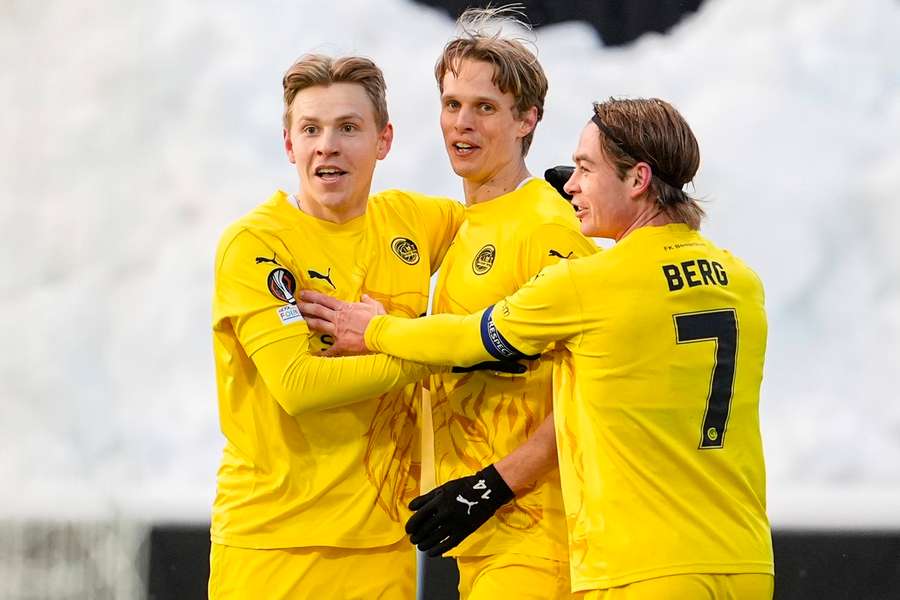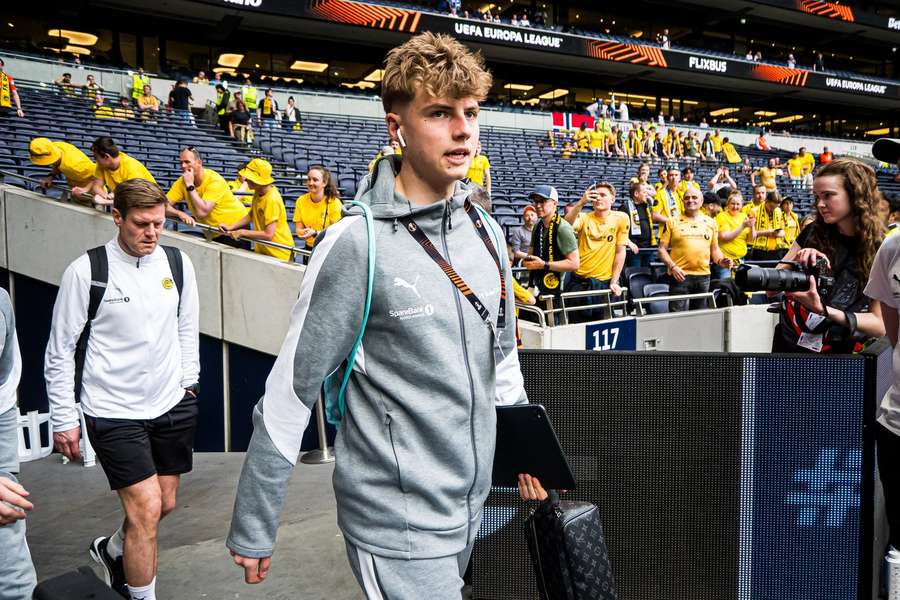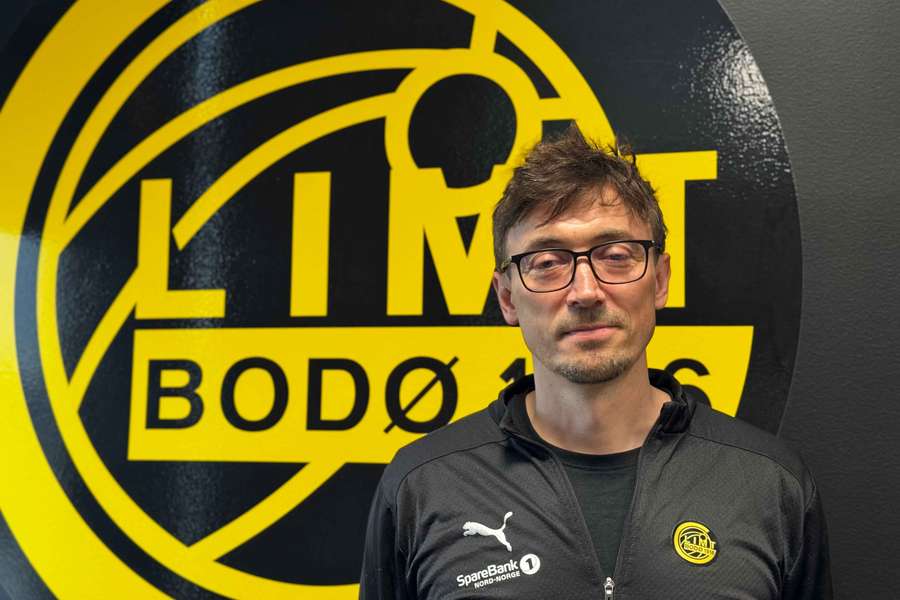One of the pivotal figures in Bodo/Glimt’s ascent to the pinnacle of Norwegian football is Havard Sakariassen, the club’s Director of Football, whose role combines data-driven scouting with an instinct for identifying players who embody the Glimt philosophy both on and off the field.
In a special roundtable discussion exclusive to Flashscore, Sky Italia, Marca, and So Foot, Sakariassen elaborated on the unique culture the club has cultivated, the reasons standout players return from stints in more prestigious leagues, and identified the player who could become Bodo/Glimt's next major star.
How does Bodo/Glimt utilize data in player scouting? And how does it integrate with the unique culture you have established here, building a successful club above the Arctic Circle based on unity rather than individualism?
“In terms of data, we have taken a slightly different approach compared to many other clubs. There are numerous programs and platforms available for purchase, but instead, we collaborated with three students who were genuinely passionate about football data and wanted to partner with us.
“They now operate a company called Fokus, in which we have invested, and we assisted them in establishing the business from the ground up. It’s utilized not only by us but also by many Scandinavian teams. It’s designed to be user-friendly for both tech-savvy individuals and football professionals; everyone can grasp it easily.
“However, that’s merely one aspect of the scouting process. As you mentioned, the culture of the club is immensely important to us and plays a significant role in our success. This aspect isn’t quantifiable. We must conduct thorough research on every player we recruit. If we make a mistake, it must be rectified swiftly—either they must adapt, or they need to leave.”
Adapting to the Arctic
Most of the players in the current squad are Norwegian, but there is also a substantial contingent of Danish players. Do you believe this is partly because they find it easier to acclimate to the local environment and mentality, aside from the fact that the sporting project resonates with them?
“It’s a good cultural fit. We share similar values, and both countries have social democratic societies. Here in Bodo, we believe that by contributing fully to the group, we receive everything back in return. Players must help elevate the team, and in turn, they will shine individually as well. It’s easy to get Norwegian and Danish players to adopt this mindset due to a shared mentality.
“However, even though the current squad is primarily Norwegian and Danish, we have also had tremendous success with players from various parts of the world. We brought in Victor Boniface from Nigeria, and he adapted exceptionally well, too.”

We have been discussing Bodo/Glimt’s unique culture and mentality; can you define what it means to you?
“We seek players who aspire to achieve personal success but do not prioritize that over the team’s objectives and values. If you and I are vying for the striker position, I want to succeed, but I must also be pleased if you surpass me and perform well.
“It’s a collective culture, team-first. Ultimately, football is not an individual sport. We need to operate like a Formula 1 team. They likely have a thousand individuals, but they all work towards a single goal—to make that car just a fraction of a second faster with each lap. If you’re only working for yourself, you don’t belong here.”
Competing at the top level
You have several players who have played in the top five leagues but ultimately returned to help you reach the Europa League semi-final. Team captainPatrick Berg returned after a year at Lens, Jens Petter Hauge was at AC Milan and won the Europa League with Frankfurt, yet still chose to come back.
“We have a group of seven team leaders with whom we meet weekly to discuss all matters related to the club, and Patrick has been part of that since 2019; he is our team captain. His presence is crucial, both as a player and as a personality and leader; bringing him back was an obvious choice.
“Moreover, considering his family’s history with the city and club—his father, uncles, and grandfather all played for Bodo/Glimt—we were thrilled that he wanted to return and viewed us as a promising project to advance his career. He can still compete against the best teams in the world while being in his hometown.
“Jens can be a game-changer for us in crucial matches; we believe he possesses an X-factor in his game. It’s not just the two of them; many players have returned over the years. There are larger clubs globally, with more money to earn, but perhaps they enjoyed their best moments in their careers playing for Bodo/Glimt.”
Do you think the environment of the city and the club contributes to that? This isn’t a large city where you’re chased by paparazzi, but a town of 55,000 people far up north in the Arctic Circle.
“Absolutely. You can enjoy a good, peaceful life here, allowing you to focus on your football. Sometimes, you need to step away to realize that the grass isn’t always greener on the other side. Patrick, Jens, Hakon Evjen, Fredrik Bjorkan, these players have lived here their entire lives and have their families here.
“It’s great to travel abroad, but I believe it’s often best to reside where you truly belong. Journalists and pundits in Norway frequently insist that players must move to foreign leagues, but I admire those who return and choose to live the life they desire, rather than conforming to others’ expectations.”
Read more: 'We don’t care about results' - Bodo/Glimt’s Hakon Evjen on the club’s rapid rise
Challenging transfer windows
How do you strategize for the transfer windows? With your season commencing in spring and concluding in winter, the primary transfer window—when most clubs are on break—coincides with the peak of your season.
“It’s quite complex for us. We aim to retain all players in January, as we hope to be competing in Europe, but we also want to keep everyone now while we’re contending for the league title. However, we have a long-term strategy for each player.
“If we sell a player, we must have a plan for their replacement. Currently, I have a clear idea of our strategy for January. During the summer window, it often happens that larger clubs miss their initially targeted players and suddenly come to us for a player in mid-August, and we have to fend them off. We can’t sell now; we’re closed.
“However, the same process applies to acquiring players. The ideal transfer window for us is when we’ve completed our business before it opens. For us, it opened a month ago (early July), and we wrapped up in one or two weeks. We won’t be selling or buying anyone now, even with a month remaining in the window.”
Norway as a whole has been rising in international rankings, with players like Martin Odegaard and Erling Haaland emerging as global stars in the Premier League. Do you see any young talents who could follow in their footsteps?
“I observe many players around here who are 16 or 17 years old with potential, but it takes a lot to become truly exceptional. If you had seen Haaland when he was 15 or 16, it would be hard to envision him becoming who he is today.
“He was good, but not the Haaland we recognize today. It requires numerous sound decisions from the player, the club, and also from parents and agents, who can often be obstacles.”

You currently have an immensely talented young player in your squad, Danish striker Mikkel Bro Hansen, who has already joined the first team at just 16. How do you facilitate his development, and what is your plan for guiding such a player?
“Our approach to young players has evolved over time. Previously, we were very connected to our academy, but suddenly the first team surged up the football hierarchy to a level that an academy in such a small city cannot match. It’s not easy for a 16 or 17-year-old player living in Bodo. You need to be a special talent, like Mikkel Bro.
“At 16, he can train with the first team every day without issue. Planning his future is quite challenging. The most difficult aspect is patience. Both the players and their parents and agents must be patient and allow them to grow and develop naturally. I believe this is a significant issue in Norway and likely globally as well.
“Another challenge for us, unlike other teams nearby like Tromso, is that we aspire to compete in the Champions League, and it’s extremely difficult to integrate a 16-year-old player into a squad at that level. However, if you are genuinely talented like Mikkel Bro, you actually have a chance to compete.”











 Links
Links
 Contact
Contact
 App
App


